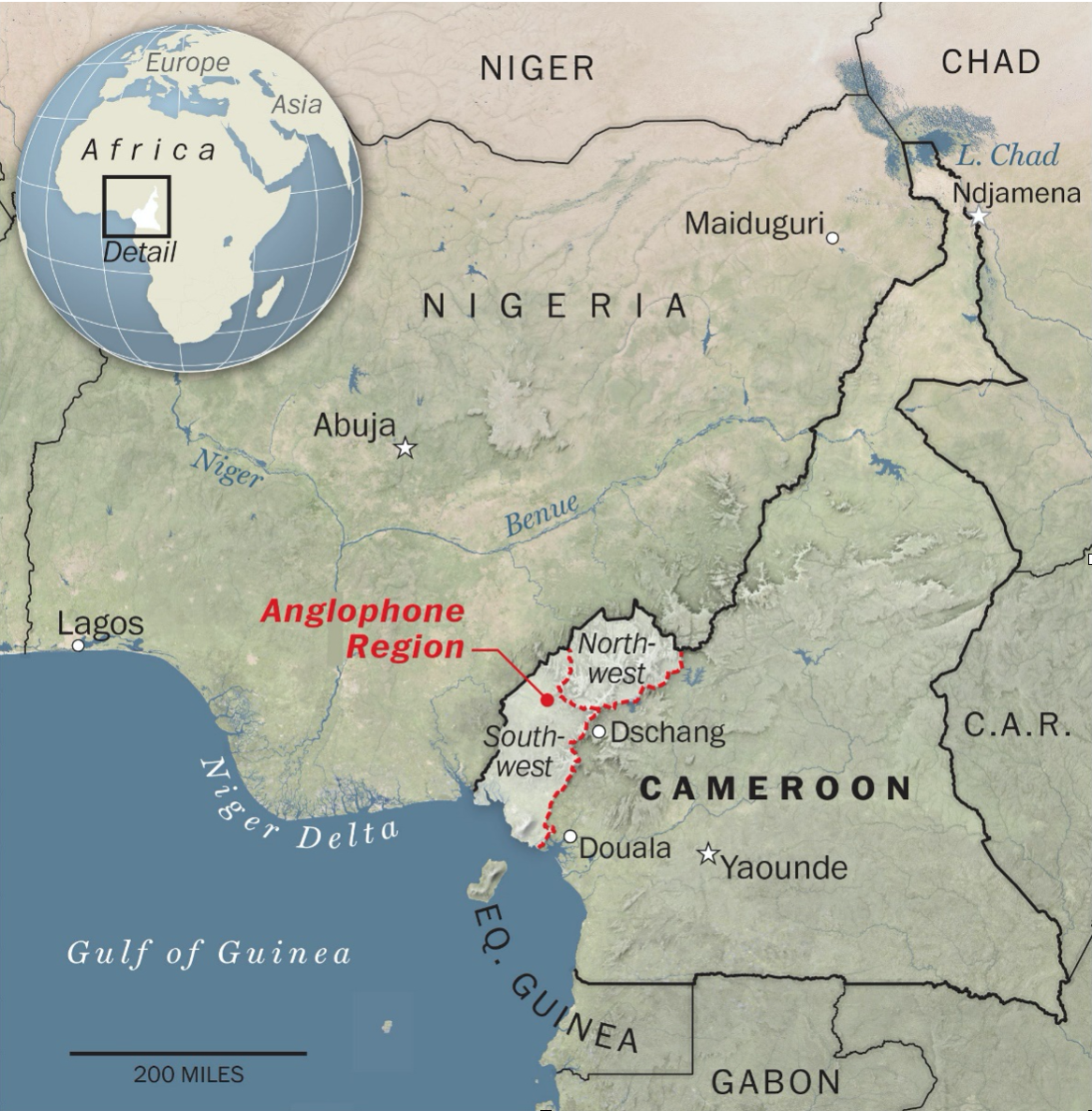22 Civilians Killed in Cameroon’s English Speaking Region
Cameroon military deployed in Bamenda to protect schools and the population, July 21, 2019 Cr: Moki Edwin Kindzeka (VOA)
By: Julian Mok
Lexington — At least 22 civilians have been killed in an attack in Donga-Mantung, a province in Cameroon’s English-speaking region on Friday, February 14th. While no groups have claimed responsibility, the Ambazonia Governing Council has blamed the Cameroon military for the brutal act.
The country’s northwestern Anglophone region had seen increasing violence leading up to legislative and municipal elections earlier in February. Separatists groups reportedly kidnapped over 100 people and threatened violence on anyone who violated their imposed boycott of the election.
The strained relationship between a French-speaking majority and English-speaking minority has deep historical roots in Cameroon. Both languages are officially recognized, but power has historically fallen into the hands of the French. Anglophones make up a fifth of the population and generally reside in a region along the border of Nigeria – separatists call this region “Ambazonia.” Following an outsized government beatdown of peaceful demonstrations by Anglophones discontented with being treated like second-class citizens, the conflict took a turn for the worse.
Hundreds of civilians have died in Cameroon’s Anglophone Crisis and over 500,000 have fled to Nigeria. (Map Source: The Independent)
Ambazonia, the northwestern region of the country, has seen escalating violence resulting in over 740,000 displaced citizens and 3,000 civilian fatalities over the last three years. Most have fled to neighboring Nigeria.
Reporters paint a grim picture of abandoned villages, scorched homes and mass graves in Anglophone Cameroon. The Cameroon military has been spotted shooting civilians from helicopters and spraying tear gas at citizens emerging from Sunday mass. This has fueled secessionist militias to respond in kind – opportunistic bandits have capitalized on the chaos, looting, kidnapping, intimidating, and killing unarmed citizens and government officials.
In light of the recent escalation in conflict, several Roman Catholic bishops have written an open letter to President Paul Biya, urging him to engage in Swiss-led negotiations with separatist leaders. The 16 bishops assured that they were not taking sides in the conflict and only felt the need to speak out to protect unarmed civilians who were caught in the middle.
Their calls to “treat each other as they wish to be treated” and reach a peaceful agreement echo the sentiment of moderate Anglophones, who, unlike the hardline secessionists, would settle for increased autonomy without the secession from Cameroon.
Several international organizations have called for an end to violence in Cameroon as well. Many have suggested the conflicting sides engage in mediated negotiations. The Africa Forum has scheduled a symposium in April to discuss possible solutions to the conflict, asking for five hundred Cameroonians representing all walks of life to attend the event and contribute their ideas. While this may be difficult to achieve, it is certainly a step towards creating a dialogue between two sides who have, in the past, avoided negotiations and seemed unwilling to make any concessions.


